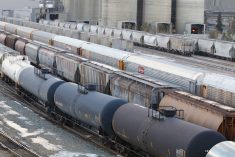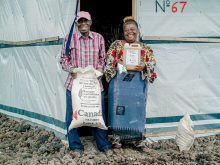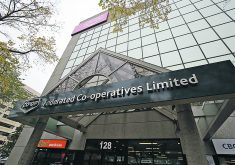REGINA — Some of the first food aid to enter war-torn Gaza came from the Canadian Prairies.
Regina-based AGT Foods took its idea of a family parcel ration program to the United Nations in 2016. Together they developed a 26-kilogram box containing Saskatchewan-produced lentils, peas and chickpeas, combined with other nutritional products.
Other stories from the Food, Fuel, Fertilizer Global Summit:
- Former PM praises Sask. global trade success
- Regulatory certainty called vital to Regina project’s future
International aid agencies distribute the boxes.
Read Also

Fuel rebate rule change will affect taxes and AgriStability
The federal government recently announced updates to the fuel rebates that farmers have been receiving since 2019-20.
More than one billion refugees have been fed since a pilot program launched in 2017, said chief executive officer Murad Al-Katib.
He calls it “compassionate capitalism.”
“This is not philanthropy,” he told the Food, Fuel and Fertilizer conference.
“This is a profit-making venture for us. We made millions of dollars and the United Nations saved billions of dollars on the consolidation and supply chain efficiency of doing this.”
The boxes replace distribution of individual items.
Al-Katib said profitability and purpose can and should be aligned in business. It’s good to be philanthropic, he said, but the true impact comes from aligning the two goals.
“I’m proud that when the humanitarian corridor in Gaza opened that Saskatchewan products were the first products that moved through the Egyptian corridor to Gaza refugees,” he said.
“This year we’re projecting to do over maybe $300 to $400 million of food aid to Gaza refugees.”
This week vessels are sailing from Thunder Bay with lentils that will be sold to the UN to help tackle one of the largest humanitarian crises, he added.
In an interview, Al-Katib said governments have always viewed food as a stabilizer to world unrest.
“COVID was just not a slap in the face, it was a punch in the nose, where the world has to recognize food systems are not properly developed,” he said.
“People have not respected the work that farmers are doing in the world and that the agriculture industry is doing to bring those commodities to consumers. We have to be paid for what we’re doing, and yet the world’s most vulnerable need access. So efficiency, sustainability, productivity are key to meeting the food challenge of the future.”
















